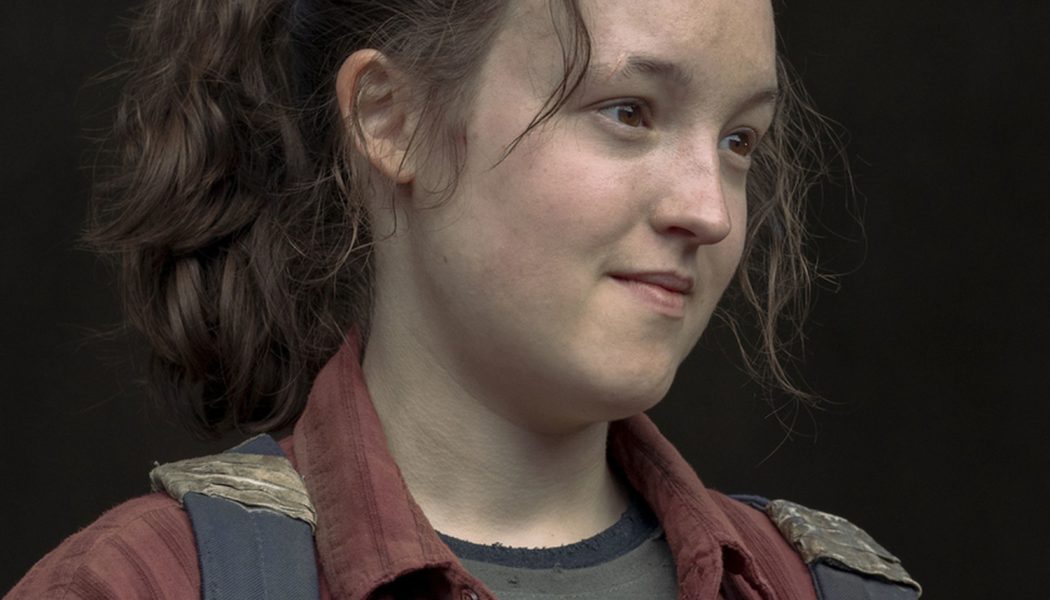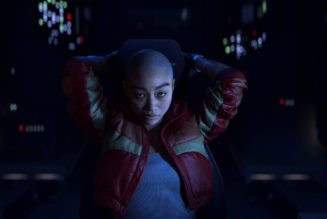The Last of Us’ Neil Druckmann and Craig Mazin say that the show’s most emotional cameo started as an idea for an animated short and an entirely new video game.
Share this story
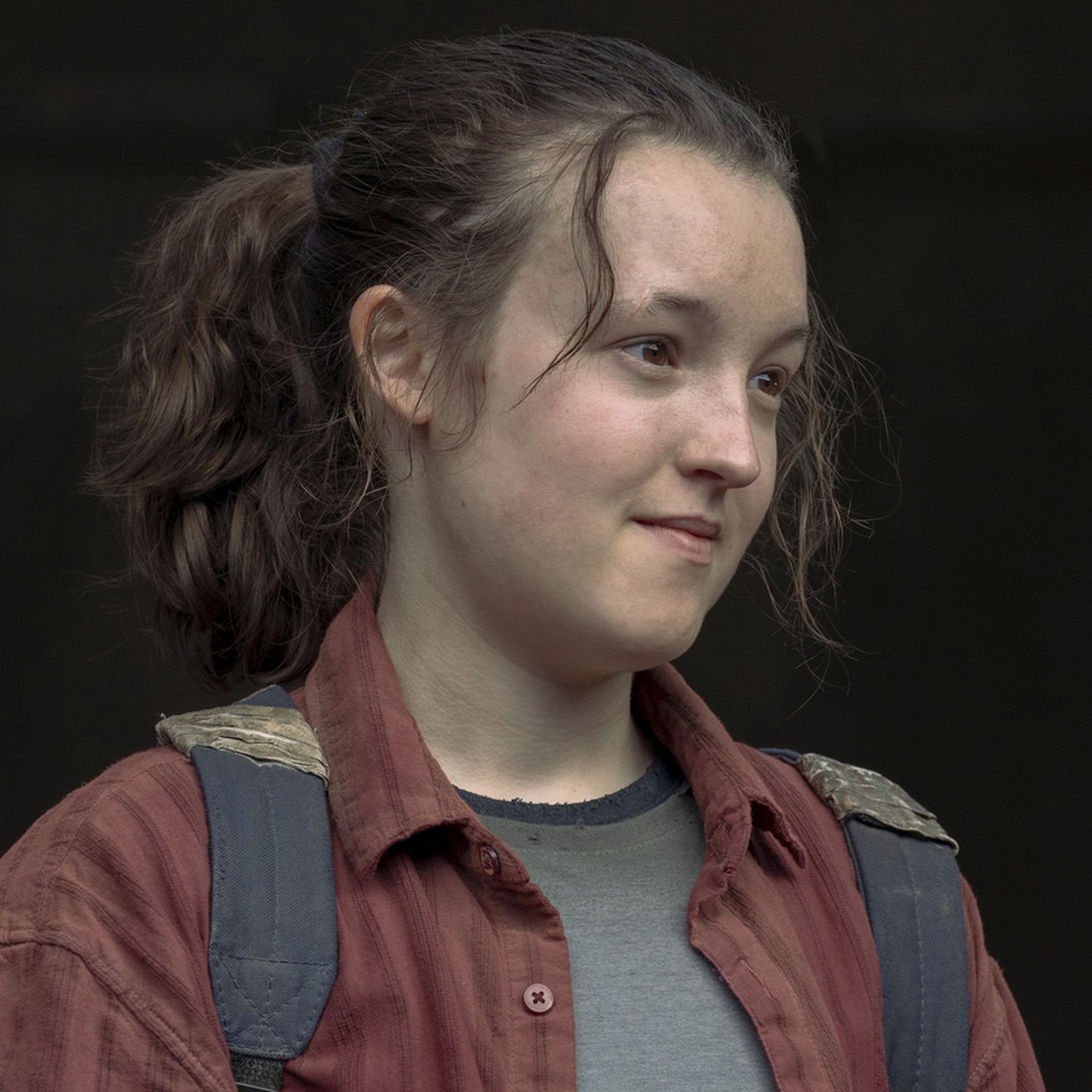
While HBO’s The Last of Us brought quite a few of the original video game’s actors back for cameo roles throughout the first season, the show was always careful not to draw too much attention to them so as not to pull focus from the larger story being told. But for its season one finale, The Last of Us pulled out one of the bigger guns for a tense and moving scene. It’s a moment that series creators Craig Mazin and Neil Druckmann wanted to capture the ethos of the entire series.
Heads up, this post contains spoilers for The Last of Us’ season one finale.
Though most of “Look for the Light” takes place in The Last of Us’ present as Joel (Pedro Pascal) and Ellie (Bella Ramsey) complete the last leg of their journey to Salt Lake City, the episode opens in the not-so-distant past just as Ellie’s about to be born. Aside from the facts that she’s very much in labor, on the run from infected, and armed only with a pocket knight, “Look for the Light” doesn’t reveal all that much about Ellie’s mother Anna (Ashley Johnson) as she runs for her life and finds refuge in a small, deserted house somewhere out in the countryside.
The episode does establish, though, how Anna gave birth to Ellie while also fighting off an infected that managed to bite her while she and her daughter were still connected via an umbilical cord. Harrowing as it is, the flashback to Ellie’s birth and how Anna entrusted her close friend Marlene (Merle Dandrige) with protecting her newborn baby both suggest an interesting reason for Ellie’s immunity to the cordyceps infection and makes Marlene’s fate in “Look for the Light” that much more impactful.

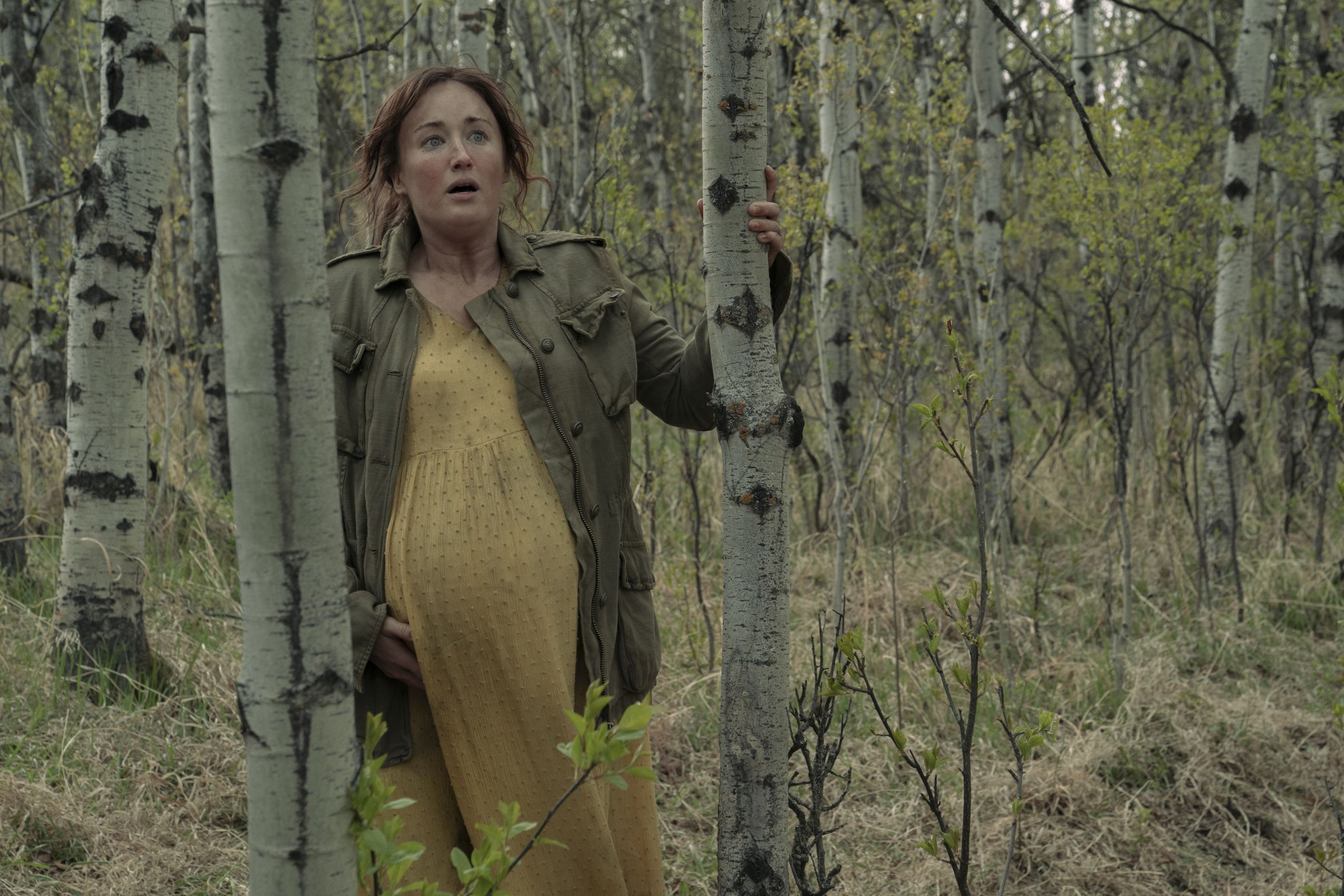
But according to The Last of Us showrunner Craig Mazin and co-creator Neil Druckmann, their reasons for opening “Look for the Light” on Anna and wanting Johnson to portray her were always much bigger than simply wanting to spell out some of what makes Ellie so special. When we recently spoke with the creative duo at a junket ahead of the show’s season finale, Druckmann revealed that he’d actually begun thinking about Anna and how he might explore her story back when the first The Last of Us initially came out.
“When we were wrapping up the game, there were these opportunities to do other pieces of art or storytelling to help promote the game,” Druckmann recalled. “So we did this comic book called American Dreams — that’s where we developed Riley — which led to the Left Behind [DLC], and there was an opportunity to do an animated short.”
Druckmann quickly set to writing a script about Anna giving birth that he described as a “little character drama that felt like it spoke to the game’s themes of parental love for their child, and how much you’re willing to do even when you’re at death’s door.” When plans for an animated short failed to materialize, Druckmann entered talks with a new game studio to “potentially do [Anna’s story] as a whole other game,” and when those plans also fell through, he began considering a live-action short that could star Ashley Johnson as the lead.
At some point, Druckmann reached out to Johnson, and the two discussed the possibility of working together again on another The Last of Us project. Between their conflicting schedules, though, it seemed like they wouldn’t be able to make things work. For a while, Druckmann thought his idea might never be realized. But when the opportunity for a The Last of Us series presented itself, and Druckmann met Mazin, the idea resurfaced organically as part of a conversation that Mazin described as “one of the most fulfilling moments” of their collaborative process.
“I often say, Troy Baker disappears into a thousand roles; I can’t believe he has all the different characters he plays,” Mazin described. “But Ashley sounds like Ellie, and Ellie sounds like Ashley. She’s already this, like, quasi-mythological creature to me, and to see her giving birth to herself — in a sense — and to create that genetic connection between her performance as Ellie, and the origin story of Bella-as-Ellie was just profound.”

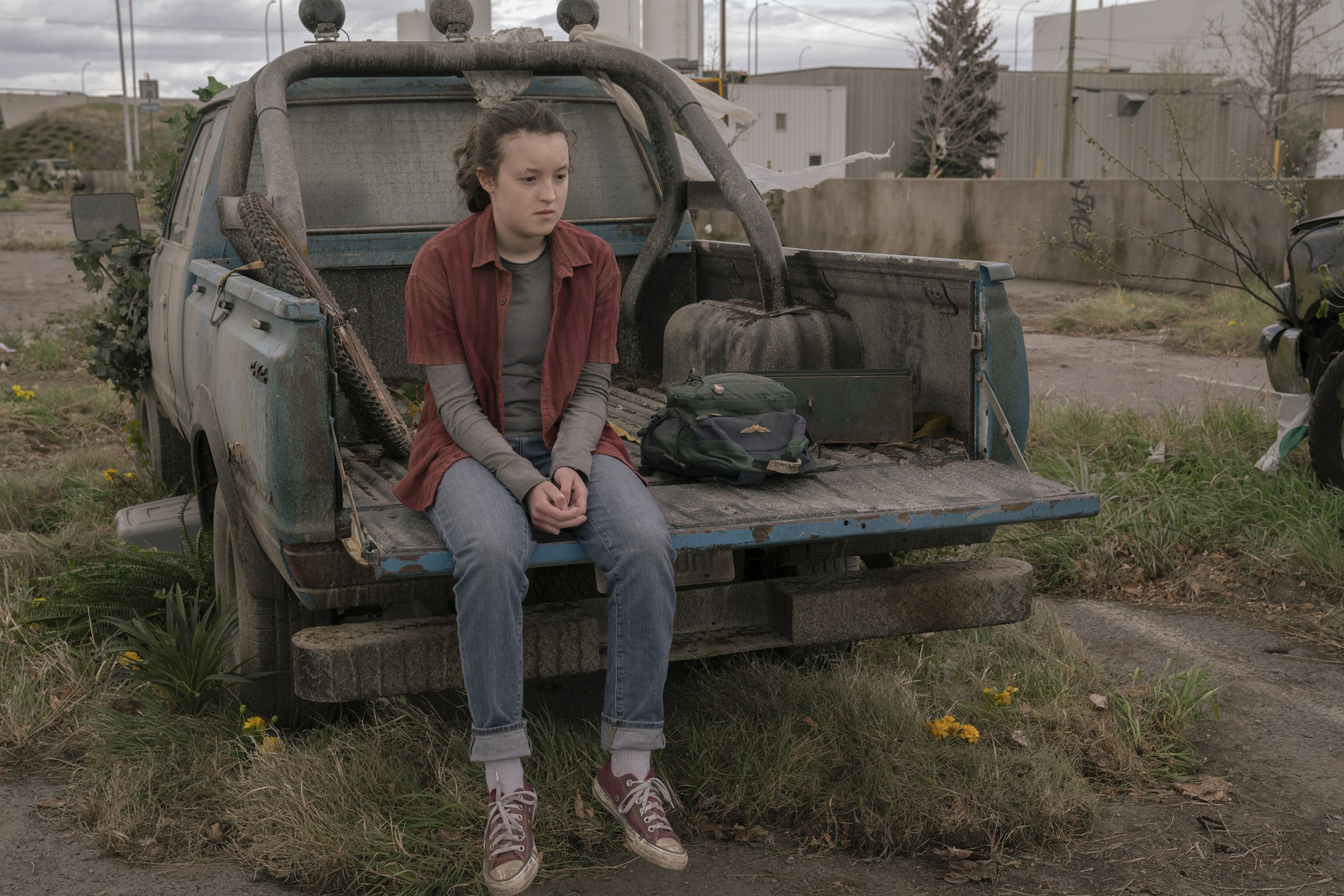
Though the scene when Anna gives birth strongly implies that Ellie’s immunity to cordyceps in the present is due to exposure to the fungus through umbilical cord blood, Druckmann said that “Look for the Light” isn’t meant to “answer that conclusively.” It’s interesting to consider how knowing more about the circumstances of Ellie’s birth might have charged Marlene’s approach to searching for a cure, and by extension, her ultimate fate in “Look for the Light.” But rather than focusing on how things might have played out differently, or the specifics of why Ellie’s special, what Druckmann wants viewers to take away from the finale’s flashback is a deeper appreciation for all the women around Ellie who wanted her to do big things with her life.
“But I think more importantly than that is it builds the relationship between Marlene and Anna,” Druckmann said. “Knowing how close she was with Anna, and that Anna’s dying wish was like, ‘take care of my kid,’ I think gives more weight and maybe more tragedy to Marlene and the sacrifice she’s trying to make for the betterment of mankind.”
